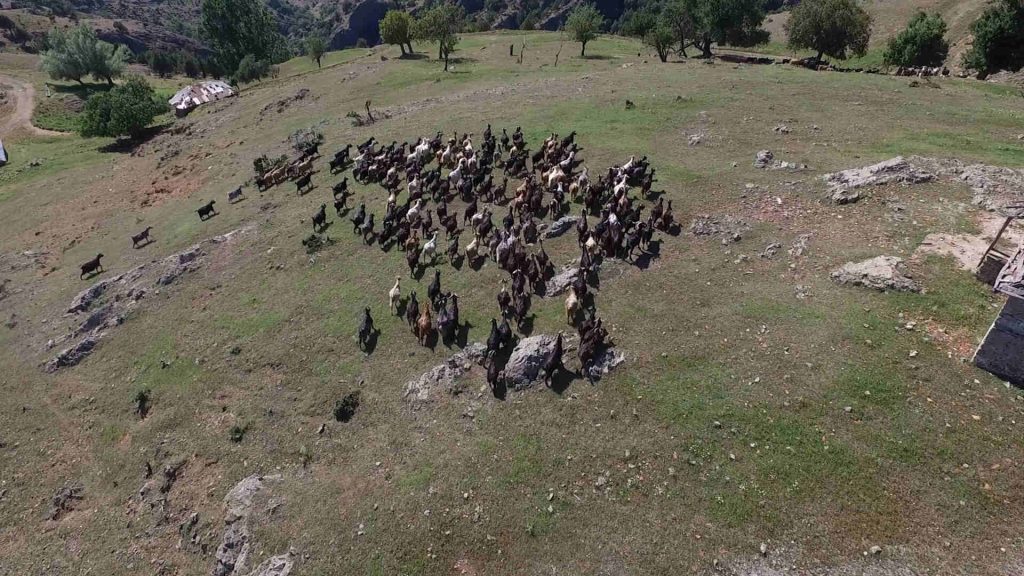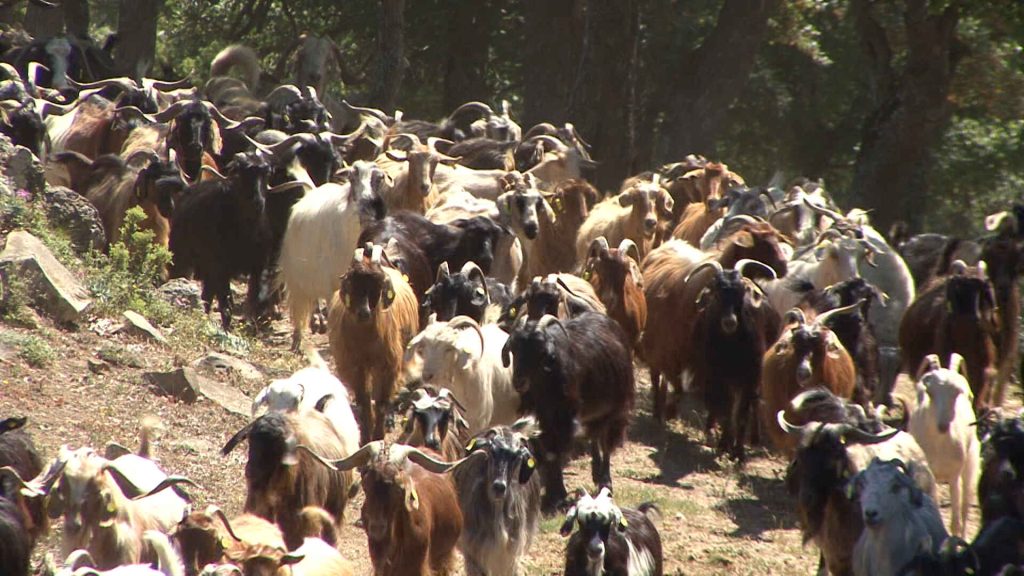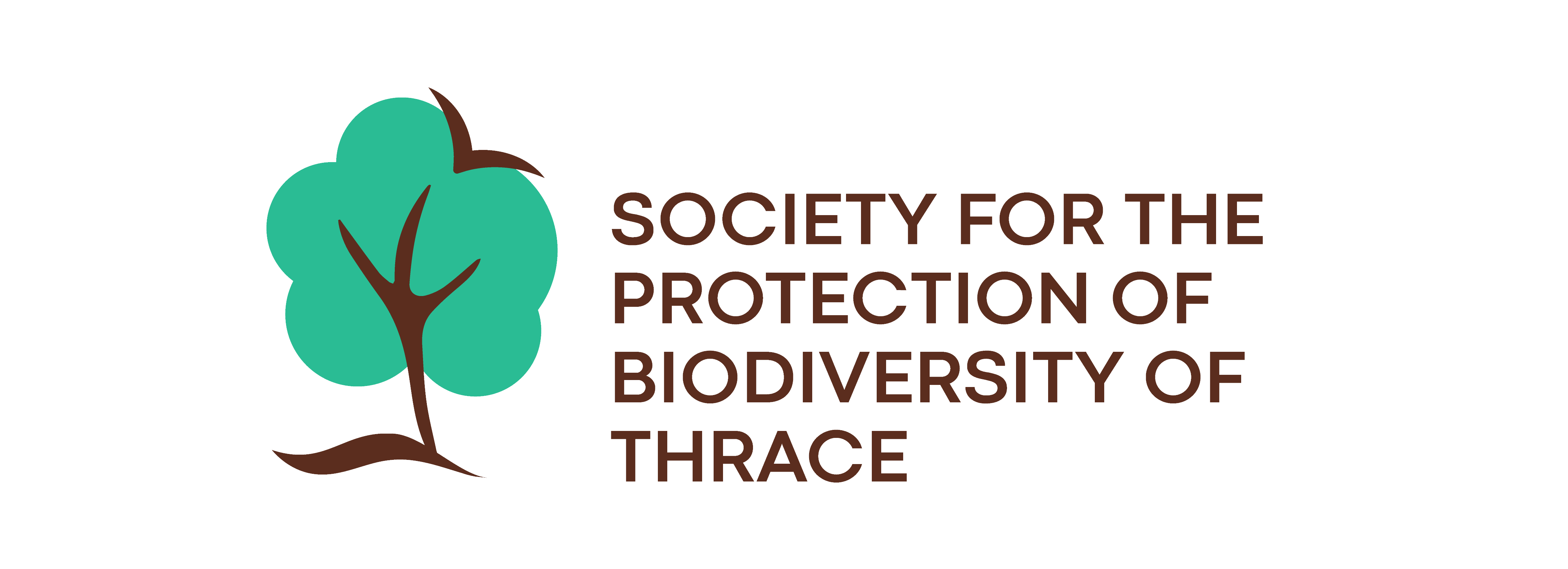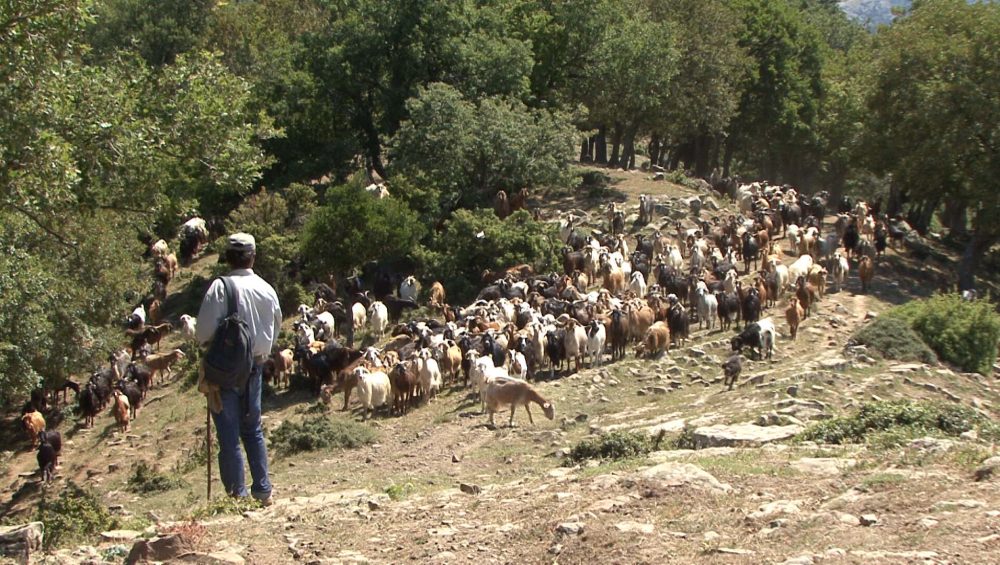Free-range stock breeding as a tool for forest fire prevention.
In the previous period, the people of Society for the Protection of Biodiversity of Thrace had the opportunity to meet and discuss with livestock farmers of central and southern Evros, that were affected by the 2023 Evros Fire. The record was carried out in the framework of the restoration study undertaken by WWF Greece in cooperation with the General Directorate of Forests and Forest Environment of the Ministry of the Environment and Energy and was related to livestock farmers who practiced free-range farming (taking their animals out for grazing) and were affected by the fire (animals, animal folds or pastures were burnt).
The aim being, to record the actual number of the few livestock farmers and livestock that are left in central and southern Evros (area affected by the wildfire), and through discussion to record the needs that arise and the problems they face, elements and factors that will determine the future of livestock farming in the region. Another goal was to investigate whether free-grazing farming can work as a preventive measure against future wildfires.
In total we met with 98 livestock farmers of central and southern Evros that practice free-grazing and were affected by the wildfire. The problems and challenges they face are numerous and long-standing, with last year's disaster making the current situation much more difficult. The small number of livestock farmers which has been in constant decline, is suffering another blow after the fire, as many of them decided to quit this profession. For many livestock farmers, significant losses to their livestock and infrastructure were recorded, as the fire left behind several burnt animal folds and animals ((2.110 burned sheep and goats according to data from the Directorate of Agricultural Economy & Veterinary of Evros). Several of them told us that after the fire, and within a period of a few days to a few weeks, they observed their animals dying, resulting in additional loss that couldn’t be documented and compensated. Many of them told us that there are long delays in compensation for the burned facilities, and the food provided by the state was not enough to cover their needs, putting more financial burden on their position as many of them were forced to keep their animals enclosed in the winter of 2023 - 2024 as their pasture was burnt.
In Evros, traditionally there has always been increased agricultural and livestock farming activity, which among other things, has contributed to the formation of suitable habitats for many bird species. In recent years however this has changed radically, the number of livestock farmers has shrunk significantly for various reasons (ageing population, internal and external migration, economically unattractive and unviable profession, etc.). As a result of the reduction of grazing mainly in the forests of the semi-mountainous areas, there has been a continuous increase in forest biomass. The bushy vegetation expanded year by year and grew so thick that in places it was impenetrable. Glades, abandoned fields and meadows were reforested, acting as another factor in creating high intensity fire, especially after a period of prolonged drought like last year's. Maintaining such a situation like that, in which the biomass was constantly increasing contributed to the difficulty of preventing and dealing with last year's dramatic events and averting a huge ecological - and not only - catastrophe. Those who have experienced similar disasters like last year's in Evros know how difficult it is to stop a forest fire in dense vegetation combined with adverse climatic conditions (strong winds, drought, etc.).
The data and information provided by the breeders demonstrate a situation that can only be described as economically unattractive. The sector is facing a number of challenges such as reduced subsidies, rising production costs, the huge financial damage caused by the fire, the grazing ban for the next few years and the ageing of farmers, the future of livestock breeding in Evros looks bleak.
But let's consider a low-cost forest fire prevention scenario, which if implemented correctly it will provide excellent results. Would we want the vegetation to become dense again within five years and run after a risk of a widespread fire again? Or would it be better to support livestock breeding in zones, maintaining forest openings and grasslands, increasing biodiversity and creating areas of easy fire suppression? Free-grazing may have a future if it will be directly linked to the prevention of forest fires.



